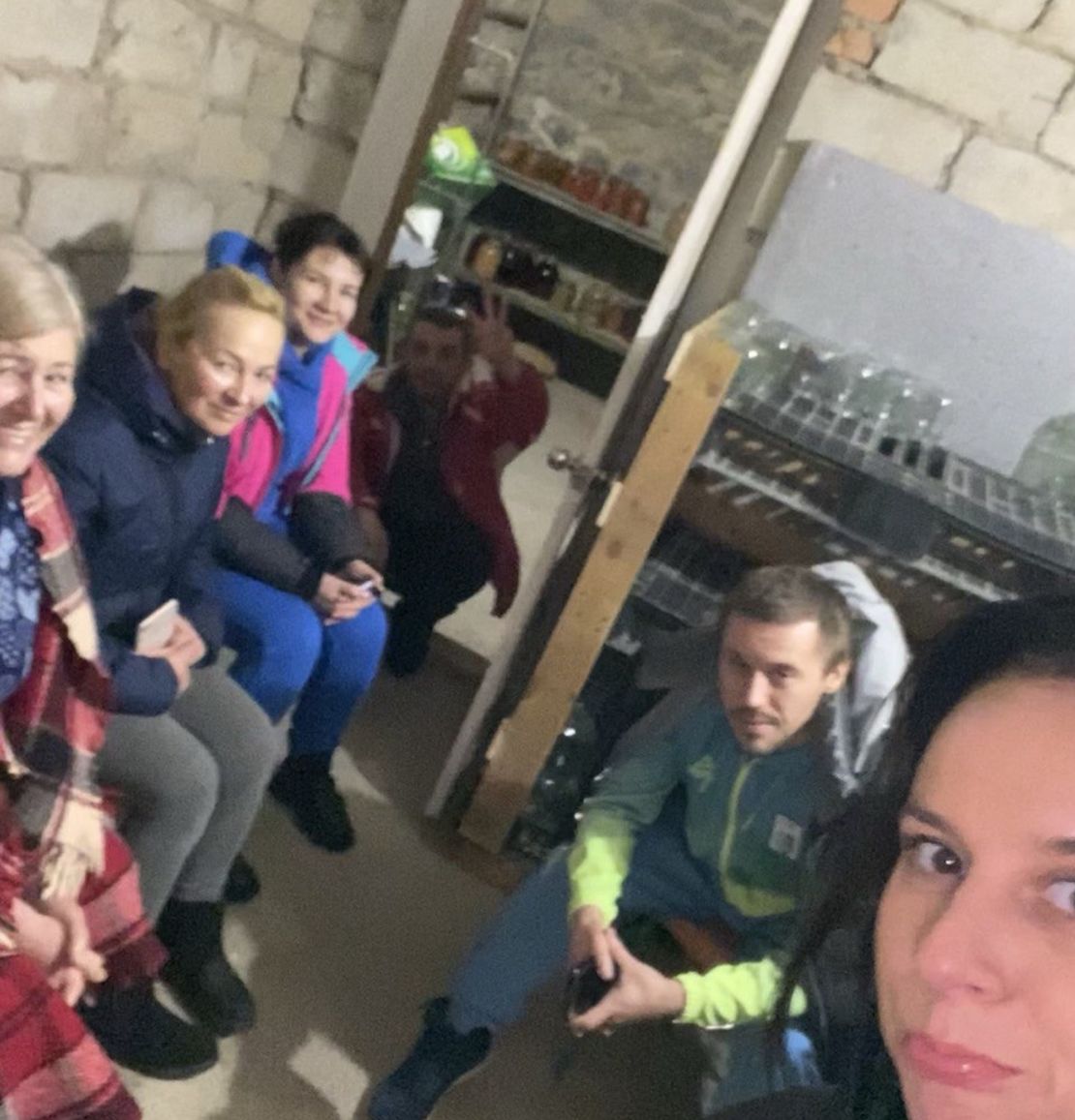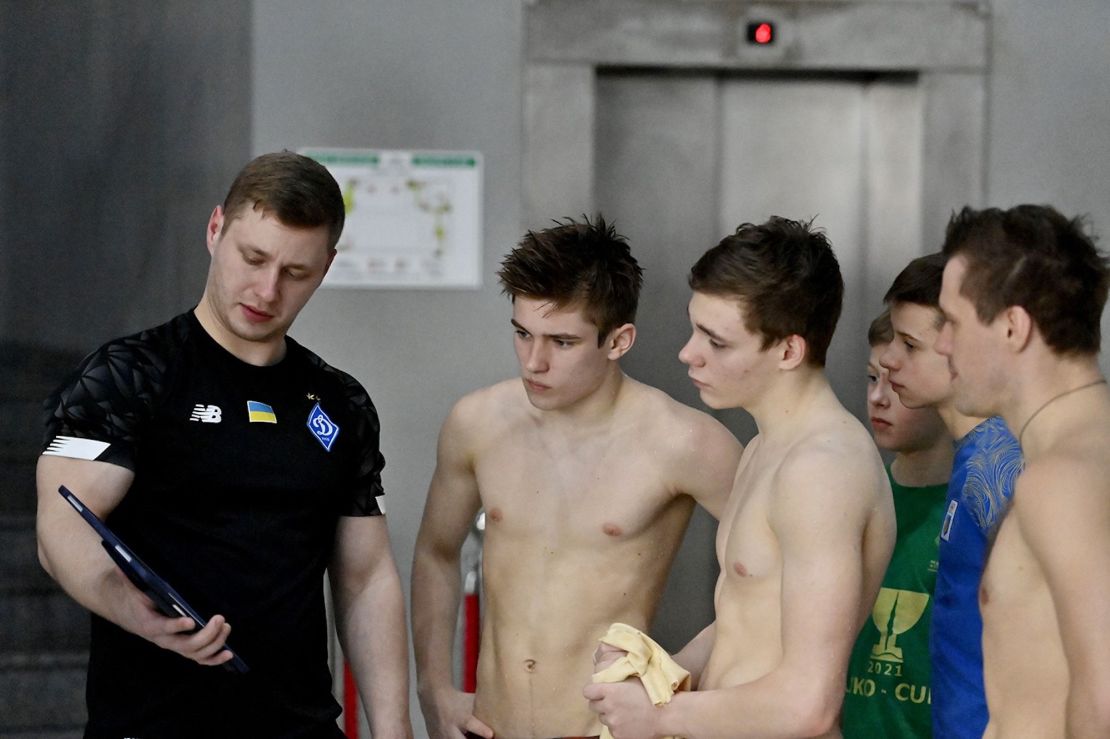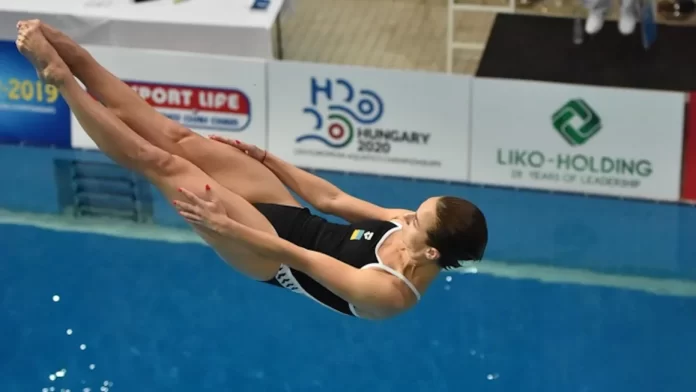The memory of Russia invading Ukraine on February 24, 2022, is lodged in Ukrainian Olympic diver Anna Pysmenska’s mind.
“When the invasion happened at 4 a.m., I was so shocked and didn’t know what to do, so at 7 a.m., I went to the swimming pool to train,” the 33-year-old told CNN Sport. “It was very scary.”
One of nine Ukrainian divers who will participate in the Olympic Games in Paris, Pysmenska isn’t scared anymore; she says she’s angry and ready to fight – in sporting competition – for her country.
For the first time in 12 years, Ukraine will be represented in all the synchronized disciplines of high dive and the 3-meter springboard, for both men and women.
“We live under constant pressure,” said Psymenska, who will be competing at her third Olympics. “During the day, we spend all our energy preparing for the Games. But at night, we wake up either from explosions or from the sound of sirens. It’s a lot of stress.”
Anna was born in central Ukraine but later moved to live and train in the eastern city of Luhansk. She left in 2014 when Russian forces occupied that territory.
“I didn’t even bring my things with me. I never thought I’d ever come back there again,” said the diver.
Psymenska says she has a recurring dream ever since fleeing: going back to Luhansk, but Russians won’t let her leave town.

Anna Pysmenska hiding in a basement in February 2022. Courtesy Anna Pysmenska
She then moved her training to Kyiv until February 2022, when Russia again tried to invade the city where she lived.
Following the start of the war, Psymenska moved to Croatia with her team before returning to Kyiv in the summer of 2022. But constant Russian attacks make preparation and concentration challenging.
“We train every day. Physically, we are ready. But morally, it’s quite difficult. I was hysterical a few days ago. Because of the constant blackouts, I eat incomprehensibly. You can’t plan anything. The lights are never on. It’s the Stone Age. It’s very unnerving,” said Psymenska.
Blackouts and sirens
As Russia continues to strike Ukraine’s energy facilities across the country, blackouts have become longer. The Ukrainian Diving Federation had to buy a powerful generator for the swimming pool where the divers train to deal with constant power outages.
If an air raid siren sounds during practice, the athletes immediately stop and go down to the bomb shelter.
“Diving is a difficult sport,” Ilya Tselutin, the national team coach, said to CNN. “Before jumping, you have to prepare and warm up. Coming back after, athletes have to prepare again from scratch before jumping.”

National diving team coach Ilya Tselutin with team members. Courtesy Ukrainian Diving Federation
There are set to be 136 divers from around the world who will participate at the 2024 Olympic Games in France.
A panel of judges will score each dive based on various criteria, including how aesthetically pleasing a diver’s movements are, the complexity of the dive and how well they enter the water. Synchronized diving is also scored on how well the two divers match each other’s movements.
But for Tselutin, these Games are more than just about the sport of diving.
“The task of the divers is to win top-level medals and to raise the Ukrainian flag as high as possible. This is their front right now. To show that our country is very strong, that the nation is invincible,” he said.
A debut in Paris
The Paris Games will be 21-year-old Danylo Konovalov’s first Olympics.
Each day he begins at 7 a.m. and has two training sessions. If there are air raid sirens, he tries to do some physical exercises as he waits in the basement.
Konovalov was born in the southern Ukrainian city of Mykolaiv, but because of the invasion, he couldn’t train in his hometown.
In April 2022, the Russians blew up a water pipeline, leaving the city without drinking water. As a result, Konovalov first moved away from Ukraine, though he soon returned to train in Kyiv. His parents still live in Mykolaiv, a city that Russian forces constantly hit.
“I’m not reading the news. I feel much calmer this way. My mom calls me and tells me how things are so that I can concentrate on a sport,” Konovalov said to CNN.
On July 5, the diving team had a farewell ceremony in Kyiv. It began with a priest’s blessing at a church near the pool where the athletes train.
Konovalov admits that he has a few superstitions that he religiously observes.
“I have my lucky swimwear in which I jump well. It’s also important to find the right place for your slippers. If the jump goes well, I only put my slippers in the same place,” he said.
If he wins a medal, Konovalov says he will dedicate his success to Ukraine and its soldiers.
Despite everything that is happening in his country, Konovalov says he will try to do his best and stay focused on the Olympic Games – this is his battle for Ukraine.





